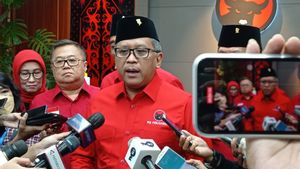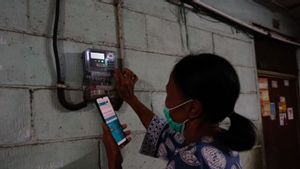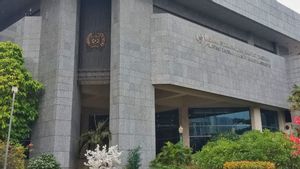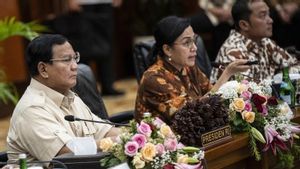JAKARTA - Single tuition fees (UKT) are currently being an issue of a national polemic that is increasingly active in the community, especially among students studying at state universities with legal entities (PTNBH).
In fact, there was a wave of protests against the high cost of lectures and the rejection of the increase was carried out at universities such as Unsoed, USU, and Unri.
Responding to this, the Director General of Higher Education, Research, and Technology, of the Ministry of Education and Culture, Prof. Abdul Haris said that university leaders should be careful and wise in determining the amount of student UKT by seeking a common ground between willingness to pay and the ability to pay.
In addition, the government also encourages PTN and PTNBH to build a humanist dialogical approach. Campuses must show real partiality to society. Harmonious communication between universities and students, parents, and guardians is the key to mutual negotiations and compromise.
"We believe that basically all parties want to make the best contribution and contribution to their pride alma mater," said Abdul.
According to him, the policy of PTNBH and Merdeka Learning Campus Merdeka (MBKM) is a good solution. This is a win-win solution policy offered to students so that one side of the campus remains autonomous, but the UKT fee is still reasonable.
First, PTNBH guarantees campus autonomy and provides opportunities for universities to seek creative funding, not only depending on the APBN or student tuition fees.
Second, MBKM encourages closer strategic partnerships between universities and the business world and the industrial world, resulting in resource sharing that is mutually beneficial for both parties. In addition, there are various MBKM flagship programs funded by the Ministry of Education and Culture, thereby reducing the operational burden of campus education.
"The determination of PTNBH status is carried out carefully by the Ministry of Education and Culture through a long and in-depth study to ensure the feasibility and readiness of universities to carry out wider autonomy, in order to be able to increase competitiveness at the national and global levels," said the former Deputy Chancellor for Academic and Student Affairs at the University of Indonesia (UI).
The study includes at least aspects of the quality of academic implementation, contributions to development, effectiveness and efficiency of organizational governance, as well as university commitments to the sustainability of all these aspects.
In addition, the Ministry of Education and Culture always closely monitors and evaluates the performance of PTNBH, one of which is through the Main Performance indicator instrument in order to assess the performance and effectiveness of the internal governance of universities.
SEE ALSO:
"If we find problems and obstacles faced by certain campuses, we Kemendikbudristek focus on solving these problems by implementing good practices that have proven successful in other PTNBH," concluded Prof. Abdul Haris.
"The only way to reduce the polemic is to ensure the presence of the principle of justice or fairness for all parties. Therefore, we have appealed to PTN and PTNBH to ensure the fulfillment of the principles of justice in determining UKT on campus," he said.
The English, Chinese, Japanese, Arabic, and French versions are automatically generated by the AI. So there may still be inaccuracies in translating, please always see Indonesian as our main language. (system supported by DigitalSiber.id)
















